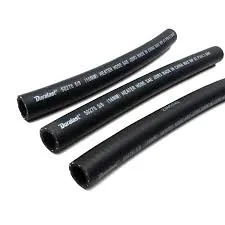Understanding the Importance of Brake Lines in Vehicle Safety and Performance
Nov . 29, 2024 16:22 Back to list
Understanding the Importance of Brake Lines in Vehicle Safety and Performance
The Importance of Brake Lines in a Car
Brake lines are an essential component of any vehicle's braking system, playing a crucial role in ensuring the safety and effectiveness of the brakes. Understanding their function and maintenance is important for every car owner and driver. This article delves into what brake lines are, their types, how they work, and why they are vital for vehicle safety.
What Are Brake Lines?
Brake lines are the tubes and hoses that carry brake fluid from the master cylinder to the brake calipers or wheel cylinders. The braking system operates through hydraulic pressure, which is transmitted via the brake fluid. When you press the brake pedal, this action pushes the master cylinder, which in turn forces the brake fluid through the lines to the brakes. The pressure generated applies force to the brake pads, slowing down or stopping the vehicle.
Types of Brake Lines
There are primarily two types of brake lines used in vehicles rigid lines and flexible hoses
.1. Rigid Lines These are typically made of steel or copper and are designed to withstand high pressure. Rigid lines are usually used in the main sections of the brake system, where protection from damage is available. They tend to last longer but can be susceptible to corrosion over time, especially in harsh weather conditions.
2. Flexible Hoses Made of rubber or a combination of rubber and synthetic materials, these lines connect rigid brake lines to the brake calipers. Flexible hoses are designed to accommodate the movement of the suspension while maintaining pressure in the system. They are more likely to wear out due to exposure to extreme temperatures, environmental factors, and the movement of suspension components.
How Brake Lines Work
When you engage the brakes, the master cylinder generates hydraulic pressure that travels through the brake lines. The hydraulic fluid is essential because it transmits force efficiently. As the fluid travels down the lines, it enters the brake calipers (for disc brakes) or wheel cylinders (for drum brakes), where it pushes against the pistons. This mechanical action causes the brake pads to press against the brake rotor or drum, creating friction that slows or stops the vehicle.
Why Brake Lines Are Critical
brake lines in a car

The reliability of brake lines is paramount for the safe operation of any vehicle. Worn or damaged brake lines can lead to brake failure, which can have catastrophic consequences. There are several reasons why maintaining brake lines is critical
1. Safety A sudden brake failure can cause loss of control, resulting in accidents. Regular inspection and timely replacement of worn or corroded lines can significantly enhance vehicle safety.
2. Performance Properly functioning brake lines ensure that the braking system works efficiently. Any blockage, leak, or damage can decrease the effectiveness of braking, leading to longer stopping distances and increased risk of accidents.
3. Cost Efficiency Delaying maintenance can lead to more serious issues down the line, resulting in costly repairs. Regular checks of brake lines can help identify potential problems early, saving money in the long run.
Maintenance Tips
To ensure the longevity and reliability of brake lines, car owners should adopt several maintenance practices
- Regular Inspections Periodically check for visible signs of wear, such as cracks, leaks, or corrosion, especially in environments with harsh weather conditions. - Fluid Level Checks Maintain proper brake fluid levels and replace it according to your vehicle manufacturer’s recommendations.
- Professional Servicing Have your braking system checked by professionals during routine maintenance services. They can provide a thorough inspection of the entire braking system, including brake lines.
Conclusion
Brake lines may be small components of a vehicle, but their role in braking safety cannot be overstated. Understanding their function and intricacies can enhance driver awareness and ensure that vehicles operate safely on the road. Routine maintenance and inspections are imperative to avoid the risks of brake failure and to enjoy a safe driving experience. Always remember when it comes to brakes, every small detail matters.
